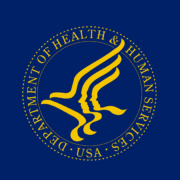Pioneering access to affordable healthcare
The drive to achieve accessible, affordable, high-quality healthcare for every man, woman, and child in the United States has been a long one, and it has been a central pillar of the National Consumers League’s (NCL’s) mission and history. Having served as Secretary of Health and Human Services during the creation and implementation of the Affordable Care Act (ACA), I have a great awareness and appreciation for the role NCL has played in bringing health security to more Americans and preventing those protections from being diminished or taken away by opponents of progress.
As I said, it’s been a long battle and one that is far from complete. You can go back to the Franklin D. Roosevelt Administration to witness NCL’s impact on health reform. Josephine Roche, a former president of NCL, was by President Roosevelt’s side writing the first-ever universal healthcare bill to be introduced in Congress. Components of that legislation became the groundwork for the creation of Medicare and Medicaid.
In building a healthier nation, NCL also played a key role in the passage of the Sheppard– Towner Maternity and Infancy Protection Act, the first venture of the federal government into Social Security legislation and the first major law that came to exist after the full enfranchisement of women. Before its passage, most of the expansion in public health programs occurred at the state and local levels. The act provided support for women and their babies through pregnancy and childbirth and resulted in a decrease in infant mortality rates. It was repealed after lobbying by the American Medical Association, which argued it was “socialized medicine” in 1929, but when the Social Security Act was passed in 1935, it included many of the same provisions.
Since that time, NCL’s name has been there whenever opportunities occur to improve the health and well-being of consumers and working Americans or when efforts to roll back hard-won healthcare benefits need to be fiercely opposed. The Department of Health and Human Services has one of the most far-reaching portfolios of any cabinet department, and, as Secretary, I valued NCL’s ability to weigh in on so many of those issues, be they Medicare reform, prescription drug affordability, or food safety.
What I appreciate about NCL’s work in this space is that its mission involves not just policy advocacy, but also practical guidance for consumers trying to navigate the complexities of our healthcare system. The organization has been an invaluable resource in helping people better understand their healthcare coverage options; protect themselves against fraud; realize the importance of being up-to- date on vaccines; and, through the excellent Script Your Future program, practice better medication adherence.
The need for NCL in today’s healthcare sphere is more important than ever. Healthcare is, and always has been, a politically charged, volatile issue. As we saw during the battles to enact the ACA and prevent its repeal, and again during the COVID-19 pandemic and the effort to get people vaccinated, there is no shortage of misinformation designed to thwart public health initiatives. We need NCL, with its impeccable credibility, to combat the misinformation clutter and to cut through the noise with reliable, evidence-supported messaging that the American people can trust.
NCL’s voice is vital, as well, in the continuing battle to make healthcare more affordable and accessible. While the ACA has been an enormous success in reducing the number of uninsured persons in this country, patients and consumers are still dealing with industry machinations that make it more difficult to get the treatments they need and make out-of- pocket costs higher than they should be. NCL continues to be an effective advocate so that patients and their healthcare providers, rather than insurers, can determine the best course of treatment together.
Yes, the road to universal healthcare is a long one, but we wouldn’t be as far in this journey as we have come without the work of the National Consumers League.
______________
Kathleen Sebelius is the CEO of Sebelius Resources, LLC, a strategic advisory firm, and was Secretary of Health and Human Services under President Barack Obama, and was a 2023 recipient of the Trumpeter Award.



 By Nancy Glick, Director of Food and Nutrition Policy
By Nancy Glick, Director of Food and Nutrition Policy





 By Sam Sears, Health Policy Associate, National Consumers League
By Sam Sears, Health Policy Associate, National Consumers League















